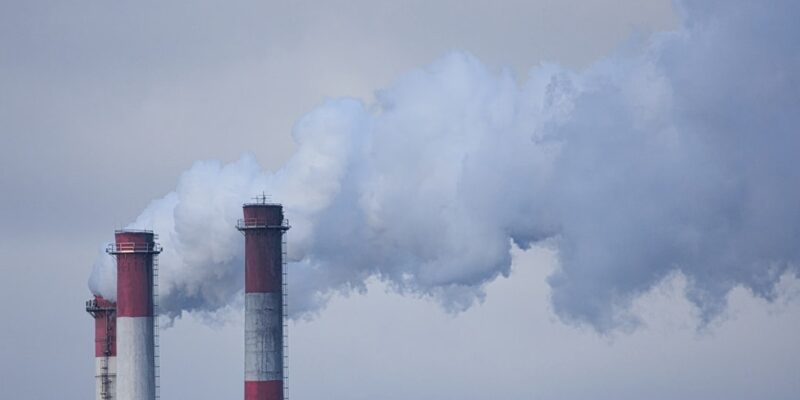
The Cost of Pollution: How Environmental Degradation Impacts Our Economy
Pollution is a global issue that has significant economic costs. It not only affects the environment and human health but also has a profound impact on economic development and sustainability. Pollution refers to the introduction of harmful substances or contaminants into the environment, which can be in the form of air, water, soil, or even noise pollution. These pollutants can have direct and indirect costs that affect various sectors of the economy.
Addressing pollution is crucial for sustainable development. As the global population continues to grow and industrialization expands, pollution levels are increasing at an alarming rate. This poses a threat to the well-being of both present and future generations. By understanding the economic costs associated with pollution, we can make informed decisions and take necessary actions to mitigate its impact.
Key Takeaways
- Pollution has a direct link to economic costs.
- Healthcare and infrastructure are direct costs of pollution.
- Lost productivity and reduced quality of life are indirect costs of pollution.
- Climate change has an economic impact through rising temperatures and extreme weather events.
- Air, water, soil, and plastic pollution all have significant impacts on health, agriculture, tourism, ecosystems, and the fishing industry.
The Direct Costs of Pollution: Healthcare and Infrastructure
One of the most significant direct costs of pollution is its impact on healthcare. Exposure to pollutants can lead to various health problems, including respiratory diseases, cardiovascular issues, and even cancer. These health issues result in increased healthcare costs as individuals require medical treatment, medication, and hospitalization.
Furthermore, pollution also affects infrastructure and maintenance costs. For example, air pollution can corrode buildings and infrastructure, leading to increased repair and maintenance expenses. Water pollution can contaminate water sources, making them unsafe for consumption and requiring costly purification processes. These direct costs put a strain on public resources and hinder economic development.
The Indirect Costs of Pollution: Lost Productivity and Reduced Quality of Life
In addition to the direct costs, pollution also has significant indirect costs that affect productivity and quality of life. Pollution can lead to reduced productivity in various sectors of the economy. For instance, air pollution can impair lung function, leading to decreased work efficiency and absenteeism among workers. This results in lost productivity for businesses and reduced economic growth.
Moreover, pollution also has a negative impact on the quality of life and social costs. Living in polluted environments can lead to stress, anxiety, and mental health issues. It can also affect social cohesion and community well-being. These social costs have economic implications as they can lead to increased healthcare expenses, decreased productivity, and reduced overall happiness and satisfaction.
The Economic Impact of Climate Change: Rising Temperatures and Extreme Weather Events
| Topic | Data/Metrics |
|---|---|
| Global Temperature Rise | 1.1°C increase in global temperature since pre-industrial times |
| Extreme Weather Events | Increased frequency and intensity of heatwaves, droughts, floods, hurricanes, and wildfires |
| Sea Level Rise | 3.7mm average annual rise in sea level since 1993 |
| Impact on Agriculture | Decreased crop yields, increased pests and diseases, and reduced livestock productivity |
| Impact on Health | Increased risk of heat-related illnesses, respiratory diseases, and vector-borne diseases |
| Impact on Economy | Decreased GDP, increased costs for infrastructure and insurance, and loss of jobs in affected industries |
Climate change is a major consequence of pollution that has significant economic costs. Rising temperatures due to greenhouse gas emissions have adverse effects on various sectors of the economy. For example, agriculture is highly dependent on climate conditions, and changes in temperature and precipitation patterns can lead to reduced crop yields and increased vulnerability to pests and diseases.
Extreme weather events, such as hurricanes, floods, and droughts, are also becoming more frequent and intense due to climate change. These events cause extensive damage to infrastructure, including roads, bridges, buildings, and power grids. The cost of repairing and rebuilding these damaged structures is a significant economic burden for governments and communities.
The Cost of Air Pollution: Impacts on Health and the Economy
Air pollution is one of the most pressing environmental issues globally. It not only affects human health but also has significant economic costs. Exposure to air pollutants can lead to respiratory diseases, cardiovascular problems, and even premature death. These health issues result in increased healthcare expenses and decreased productivity due to sick leave and reduced work efficiency.
Furthermore, air pollution also has an impact on the economy through its effects on tourism and urban development. Poor air quality can deter tourists from visiting certain destinations, leading to a decline in tourism revenue. Additionally, it can also discourage businesses from investing in polluted areas, hindering urban development and economic growth.
The Cost of Water Pollution: Impacts on Agriculture and Tourism
Water pollution is another critical issue that has economic costs. Contaminated water sources pose a threat to agriculture as they can affect crop growth and reduce yields. Farmers may incur additional expenses to purify water for irrigation or invest in alternative water sources, leading to increased production costs.
Moreover, water pollution also affects tourism, especially in coastal areas. Polluted beaches and water bodies deter tourists from visiting, resulting in a decline in tourism revenue. Coastal communities that rely on tourism as a source of income are particularly vulnerable to the economic impacts of water pollution.
The Cost of Soil Pollution: Impacts on Food Production and Ecosystems
Soil pollution has significant economic costs, particularly in terms of food production and ecosystems. Contaminated soil can affect crop growth and reduce agricultural productivity. Farmers may need to invest in soil remediation techniques or switch to alternative farming methods, leading to increased production costs and reduced profitability.
Furthermore, soil pollution also has adverse effects on ecosystems and biodiversity. Contaminated soil can harm plants, animals, and microorganisms, disrupting the delicate balance of ecosystems. This can have cascading effects on the environment, including reduced biodiversity, ecosystem services, and overall ecological health.
The Cost of Plastic Pollution: Impacts on Marine Life and the Fishing Industry
Plastic pollution is a growing concern that has significant economic costs, particularly for marine life and the fishing industry. Plastic waste in oceans and water bodies poses a threat to marine ecosystems. Marine animals can ingest or become entangled in plastic debris, leading to injury or death. This disruption in marine ecosystems can have far-reaching consequences for fisheries and the fishing industry.
Plastic pollution also affects tourism and coastal communities. Polluted beaches and waters deter tourists from visiting coastal areas, resulting in a decline in tourism revenue. Coastal communities that rely on tourism as a source of income are particularly vulnerable to the economic impacts of plastic pollution.
The Economic Benefits of Environmental Protection: Investing in Sustainable Development
While pollution has significant economic costs, there are also economic benefits to be gained from environmental protection and sustainable development. Investing in pollution control measures and transitioning to cleaner technologies can create new economic opportunities and industries. This includes the development of renewable energy sources, waste management systems, and sustainable agriculture practices.
Furthermore, environmental protection can also lead to the creation of green jobs. Green jobs are employment opportunities that contribute to preserving or restoring the environment while also providing economic benefits. These jobs can range from renewable energy technicians to environmental consultants, offering employment opportunities and contributing to economic growth.
The Urgent Need for Action to Address the Cost of Pollution
In conclusion, pollution has significant economic costs that affect various sectors of the economy. From healthcare expenses to infrastructure damage, pollution poses a threat to economic development and sustainability. It is crucial for individuals, businesses, and governments to take action to address pollution and invest in sustainable development.
By implementing pollution control measures, transitioning to cleaner technologies, and promoting sustainable practices, we can mitigate the economic costs of pollution. Furthermore, investing in environmental protection can also lead to economic benefits, such as the creation of green jobs and industries.
The urgency of addressing pollution cannot be overstated. The economic costs are already substantial, and if left unchecked, they will continue to escalate. It is essential for individuals to make conscious choices in their daily lives, businesses to adopt sustainable practices, and governments to implement policies that prioritize environmental protection. Only through collective action can we effectively address the cost of pollution and ensure a sustainable future for generations to come.
If you’re interested in exploring the economic effects of pollution further, you might find this article from Wave Magnets insightful. The article delves into the various ways pollution can impact economies, from increased healthcare costs to reduced productivity and tourism. It also discusses potential solutions and strategies to mitigate these effects. To read more about this topic, check out the article on Wave Magnets’ website: https://wavemagnets.com/sample-page/.
FAQs
What is pollution?
Pollution is the presence or introduction into the environment of substances or things that cause harm or discomfort to living organisms.
What are the economic effects of pollution?
Pollution can have significant economic effects, including increased healthcare costs, decreased property values, and reduced productivity due to illness and absenteeism.
How does pollution affect human health?
Pollution can cause a range of health problems, including respiratory diseases, heart disease, and cancer. It can also exacerbate existing health conditions and lead to premature death.
What are the environmental effects of pollution?
Pollution can have a range of environmental effects, including damage to ecosystems, loss of biodiversity, and climate change.
What are some examples of pollution?
Examples of pollution include air pollution from factories and vehicles, water pollution from agricultural runoff and sewage, and soil pollution from industrial waste and pesticides.
What can be done to reduce pollution?
There are many strategies for reducing pollution, including improving energy efficiency, using renewable energy sources, reducing waste, and implementing regulations and policies to limit pollution.


















